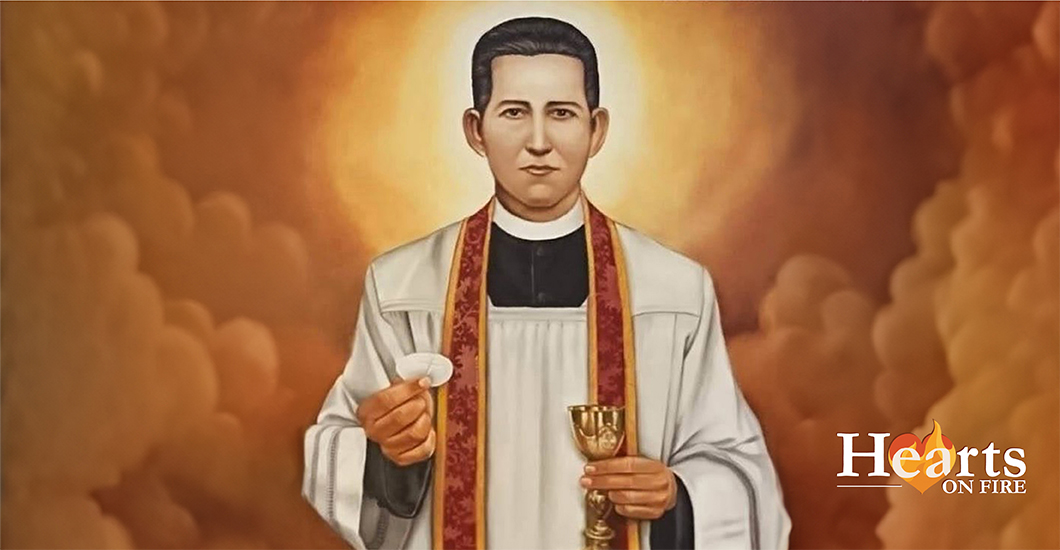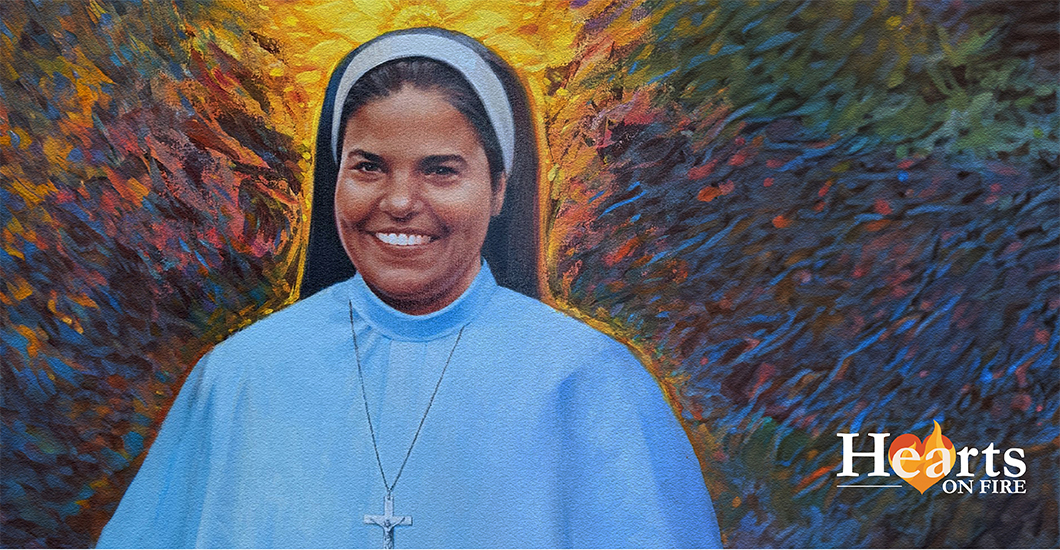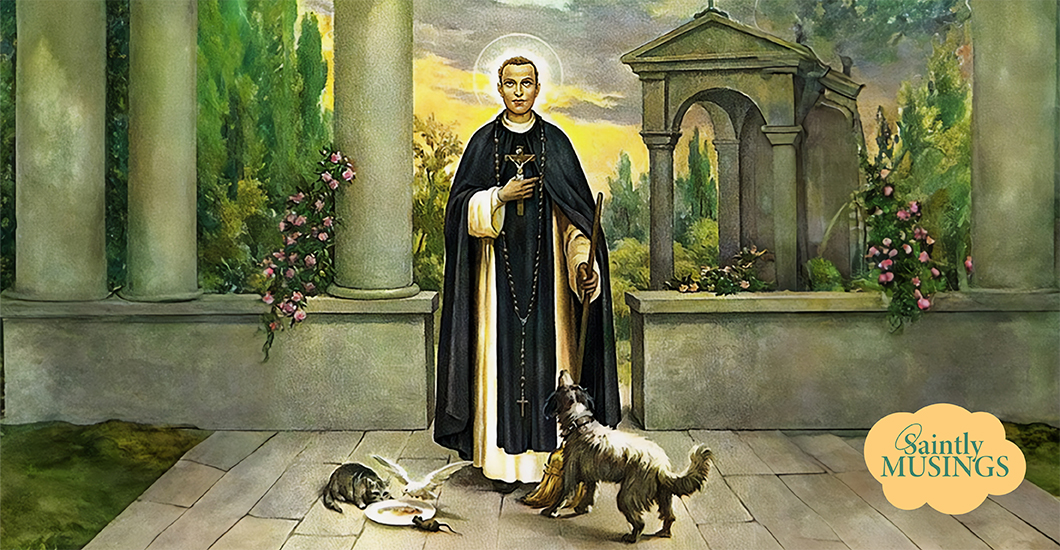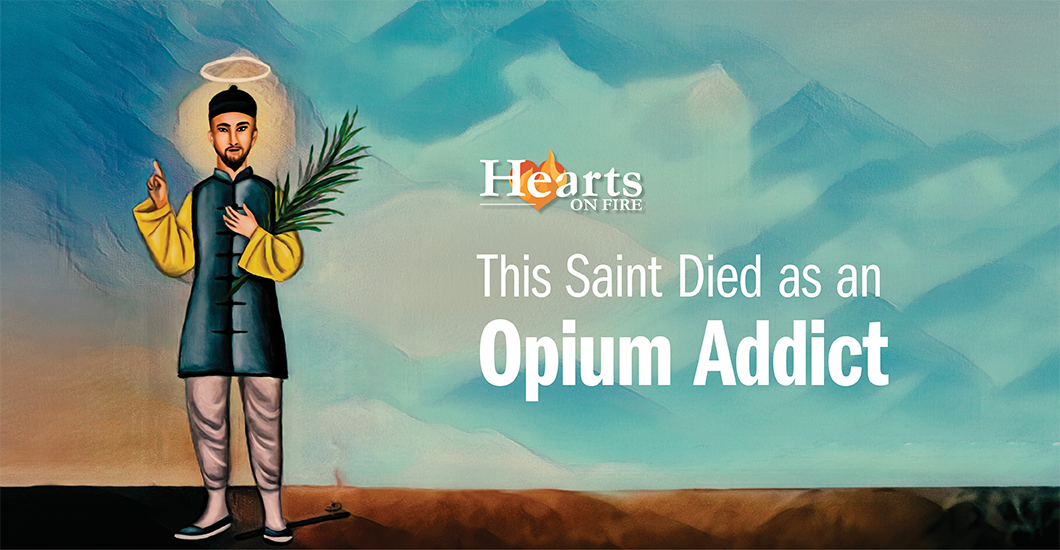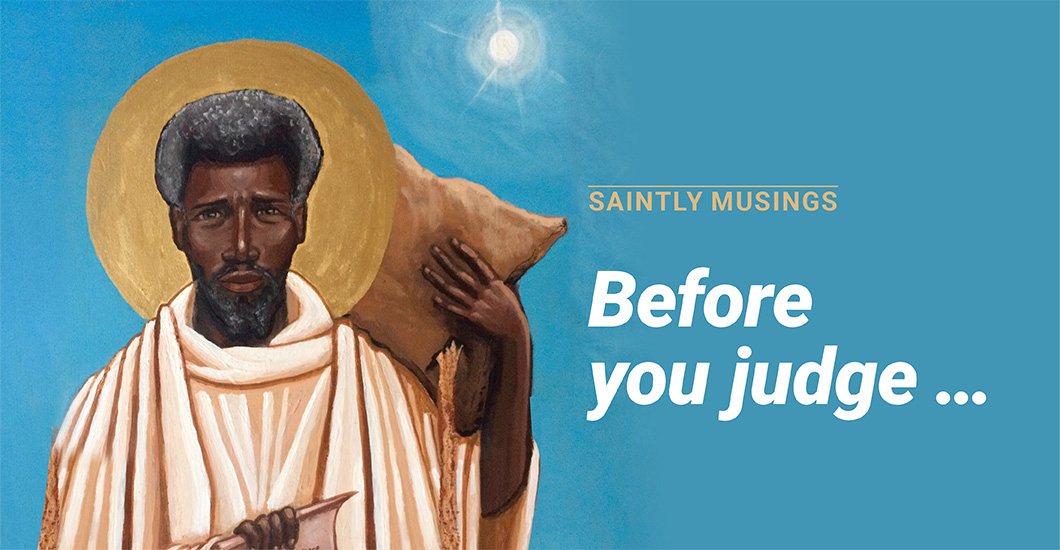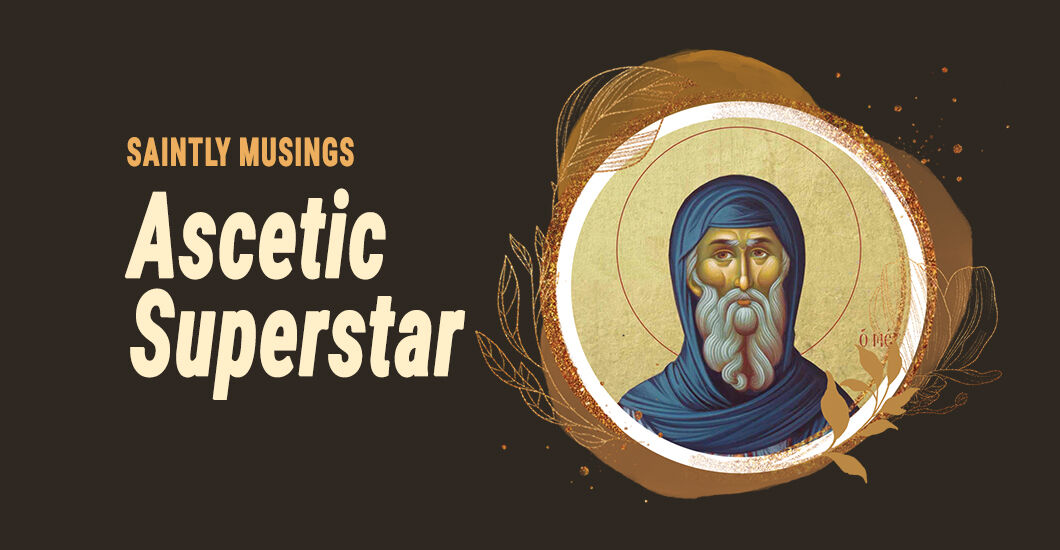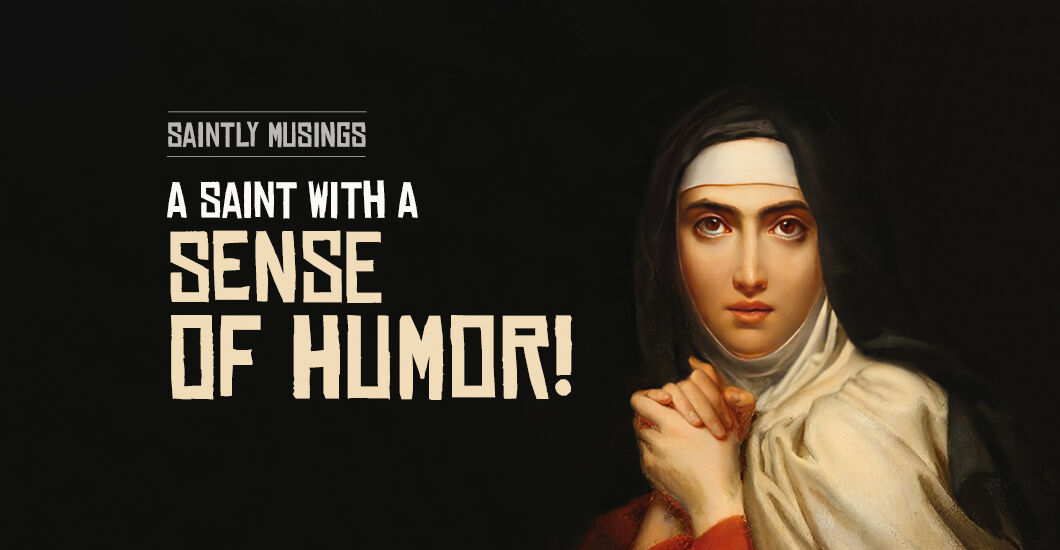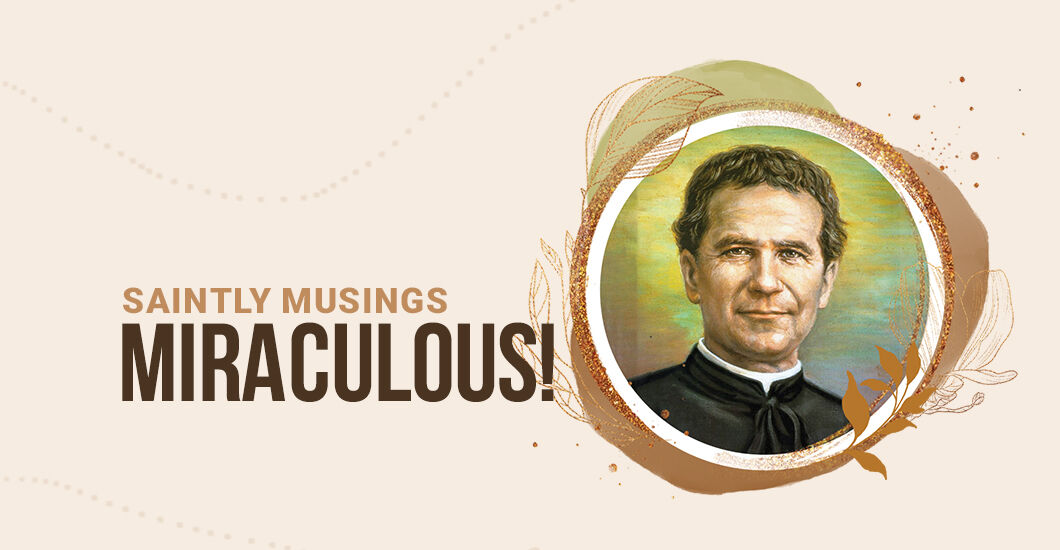Trending Articles
Live Your Best Life
He didn’t have much time left, but Father Hilton chose to thrive on the promises, inspiring millions and changing lives
My journey through life has not been very smooth, but from the moment I decided to follow Christ, my life has never been the same. With the Cross of Christ before me and the world behind me I can firmly say, “There’s no turning back…”
During my schooldays at Bede’s College in Mentone, I felt a strong calling from within. I had great mentors there including Brother Owen who inspired and fostered my love for Jesus. At the tender age of 17, I joined the Missionaries of Sacred Heart. After 10 years of study, including a stint at the University of Canberra and a Theology degree in Melbourne, I was finally ordained.
Tryst with destiny
My first appointment was in Papua New Guinea, where I received a practical grounding living amongst simple people with a great sense of living in the present moment. Later, I was sent to Paris to study liturgy. Doctoral studies in Rome were interrupted by tension headaches which prevented me from completing it. And soon it became clear that my calling was not to teach in the seminary. On my return to Australia, I got involved in parish ministry and had a taste of 16 parishes in several different states across the country. I was revitalized by my involvement with two fabulous movements which nurture and revive marriage and family life—Teams of Our Lady and Marriage Encounter.
I felt content. Life was going very well. But all of a sudden, on 22nd of July 2015, everything changed. It didn’t come totally out of the blue. Over the past six months, I had seen blood in the urine on a couple of occasions. But now I was unable to even pass urine. In the middle of the night, I drove myself to the hospital. After a series of tests, I received alarming news. I had been diagnosed with kidney cancer which had already reached the fourth stage. I found myself in a state of shock. I felt cut off from normal people. The doctor had informed me that even with the medications, I could only expect to live for another three and half years. I could not help thinking about my sister’s tiny children. I would never see these charming toddlers grow up.
Until this crisis occurred, I had loved praying the morning meditations but from then on I struggled. After a while, I found an easier way to meditate. Resting before the Lord’s presence, I repeated a mantra inspired by Dante, “Your Will is my peace.” This simple form of meditation enabled me to restore my peace and trust in God. But as I went about my normal day, I found it much more difficult. I was often distracted by thoughts such as ‘I wouldn’t be around much longer…’
The Best Advice
After three months of treatment, tests were done to see if the medication was working well. The results were positive. There was significant reduction in most areas, and I was advised to consult a surgeon to remove the offending kidney. I felt a burst of relief because in the back of my mind I doubted if the medication was really working. So this was really great news. After the operation, I recuperated and returned to being a parish priest.
This time around, I felt more energized towards evangelization. Not knowing how long I would be able to do this work, I put all my heart into everything I engaged in. Every six months, tests were done. Initially, the results were good, but after a while the medicine I had been taking became less effective. Cancer began to grow in my lungs and in my back, giving me sciatica and causing me to hobble. I had to undergo chemotherapy and start a whole new immunotherapy treatment. It was disappointing, but not a surprise. Anybody who is on a journey with cancer knows that things change. You can be well one moment and next moment disaster strikes.
A beautiful friend of mine, who has been a nurse in the oncology department for many years, gave me the best advice: Go on living your life as normally as you can. Have coffee if you enjoy coffee, or have a meal with friends. Keep doing the normal things.
I loved being a priest and felt excited by the wonderful things happening in our parish. Even though the journey was no longer smooth, I still loved what I did. I always loved celebrating the Mass and ministering the Sacraments. It is something I held very precious and I am always grateful to God for this great privilege.
Beyond Horizons
I had a strong conviction that we really need to make greater efforts to turn around the dwindling number of people coming to the Church by being proactive. In our parish we endeavored to make Sunday more engaging. Since I had always loved the contemplative side of our Church, I wanted to create an oasis of prayer and peace by bringing a little bit of the monastic spirit into our parish. So every Monday night, we held a contemplative, candlelit Mass with soothing contemplative music. Instead of giving a sermon, I read a reflection.
One of the songs that touched me deeply is the GRAMMY winning single “10,000 reasons (Bless the Lord) by Matt Redman. Whenever I sang the third verse of the song, I almost choked up.
And on that day
when my strength is failing.
The end draws near
And my time has come
Still my soul will
Sing your praise unending
Ten thousand years
And then forevermore
Forevermore
I found it so moving because what we are ultimately trying to do is to give praise to God and develop our relationship with Jesus. Despite my illness, it was one of the most exciting times in my life as a priest. It reminded me of the words Jesus spoke, “I have come that they may have life and have it to the full.” John 10:10
“My husband who is not a Catholic and only beginning to learn about faith got to know Father John by chance. Later he said ‘From what I know about this guy, Jesus… Father John seems to be just like Him. To know you are going to die and continue to give of yourself more and more even though the people around you don’t realize that these are your last days…” – Kaitlyn McDonnell
“One of the things John was very clear about was his purpose in life. He was an absolute driver and really made Jesus real in this world. I would often wonder what would have happened if he hadn’t been that strong in terms of his faith and values. It might have been very challenging for him but every Sunday when we met him, he had the same energy. Regardless of what happened around him or with him or to him, he had a sense of serenity around him. It was an incredible gift.” – Dennis Hoiberg
“We had to remind him that he had limitations, but that didn’t slow him down. He was such an inspiration because here’s a man who’s been told you’ve got a limited time. Yet he still kept giving instead of getting overcome by his disease and thinking about it.” – Shaun Sunnasy
Late Father John Hilton Rate passed away on 22nd of September 2019 after a long and protracted fight with cancer. At the time of his death, Father Rate was the Parish priest at Henley Beach, Australia. The article is based on an inspiring talk shared by Father John Hilton Rate in the Shalom World program “TRIUMPH”. To watch the episode visit: shalomworld.org/ show/triumph
Related Articles
The Mexican Revolution which began in the early 1920s, led to the persecution of the Catholic community in that country. Pedro de Jesus Maldonado-Lucero was a seminarian at that time. Once he became a priest, despite the risk, he stood with his people. He tended to his flock during a terrible epidemic, founded new apostolic groups, reestablished associations, and ignited Eucharistic piety among his parishioners. Upon discovering his pastoral activities, the government deported him, but he managed to return and continue serving his flock, in hiding. One day, after hearing the confessions of the faithful, a gang of armed men busted his hiding place. Father Maldonado managed to grab a reliquary with Consecrated Hosts as they forced him out. The men forced him to walk barefoot throughout the town, as a crowd of the faithful followed him. The city mayor grabbed Father Maldonado's hair and dragged him toward the city hall. He was knocked to the ground, resulting in a skull fracture that popped out his left eye. He had managed to keep his grip on the pyx until this time, but now it fell out of his hands. One of the thugs took some Holy Hosts, and as he forcefully stuffed the hosts inside the priest’s mouth, he shouted: “Eat this and see if He can save you now.” Little did the soldier know that just the night before, during the Holy Hour, Father Maldonado had prayed that he would happily give his life for an end to the persecution ‘if only he would be allowed to take Communion before his death.’ The thugs left him for dead in a pool of his own blood. Some local women found him still breathing and rushed him to a nearby hospital. Father Pedro Maldonado was born into eternal life the next day, on the 19th anniversary of his priestly ordination. Pope John Paul II canonized this Mexican priest in 2000.
By: Shalom Tidings
MoreRani Maria Vattalil was born on 29 January 1954 to Eleeswa and Paily Vattalil in a small village called Pulluvazhy, in Kerala, India. From a young age, she was brought up in the Christian faith, having love for the poor. She attended daily Mass and led family prayers. During the final year of high school, Rani felt the Lord calling her to consecrated life and entered the Franciscan Clarist Congregation in 1972. It was Rani Maria’s ardent desire to do missionary work in North India and serve the poor, even if it cost her life. She was sent to Madhya Pradesh (a central Indian state) and served several mission areas there. Sister Rani Maria was given the responsibility of coordinating the social apostolate of the local diocese. She organized various educational programs for children and young people and worked relentlessly to empower the indigenous people. She understood how the poor, illiterate farmers were exploited and taken advantage of by their landlords. So, she educated them on their rights, helped them fight for justice, and spoke for those who were unjustly imprisoned. All this infuriated the upperclass landlords, who threatened her with dire consequences if she continued supporting the cause of the poor. But Rani Maria feared nothing and did not back down from her mission to 'love her neighbor.' A devious plan was then hatched by those who hated her. On 25th February 1995, while traveling by bus, she was mercilessly stabbed 54 times by Samundhar Singh—a man hired by the landlords. She breathed her last, repeating the Holy name of Jesus. Rani Maria worked her entire life to fight for the dignity and rights of her fellow men and bore witness to the Gospel through her social activities. Sister Rani Maria’s family, following the valiant example of their daughter, forgave her murderer wholeheartedly, even inviting him to their home! This act of mercy touched him deeply; he repented of his heinous crime and became a changed man. Sister Rani Maria was beatified by Pope Francis on 4th November 2017.
By: Shalom Tidings
MoreMartin de Porres was born in 16th-century Peru; he grew up facing the stigmas of both his mixed race and illegitimacy. After a barber-medical apprenticeship in his young years, he joined the Dominicans as a ‘lay helper’ and continued his barber work in the monastery. One day, Brother Francis Velasco Carabantes approached Martin, desiring to talk to this man whom people were already starting to believe was saintly. Martin was busy with his barber work; he absent-mindedly grabbed this novice and placed him in the barber’s chair. Brother Francis had no inclination to have his head shaved; he disliked the hairstyle that the Dominicans used. Before he could resist, Martin had finished his job, and Brother Francis was angry beyond expression. He started to shout, calling Martin all sorts of curse words. Martin was lost in prayer, and by the time he noticed that this novice was shouting, one of the rectors had seen the commotion and was scolding Brother Francis, who was severely punished and sent away. Martin, once he came to realize what had happened, went to the rector with all possible excuses. He begged forgiveness for this person who had verbally abused him, trying even to explain away the curse words used. Finally, he told the rector: “Everyone knows what a sinner I am.” The rector, who was aware of Martin’s saintly life, gave in to his request and forgave Brother Francis. Not satisfied with this, Brother Martin even sent fresh fruit, which was a rare delicacy in the monastery, to Brother Francis. How many times have we rejoiced in the ‘just’ punishments that our transgressors received? Let us pray to Saint Martin for the virtue of humility, to forgive and show the other cheek, as Jesus taught us to do.
By: Shalom Tidings
MoreOn a scorching afternoon on the streets of Calcutta, I met a boy… Prayer is an undeniable, central, and key part of every Christian’s life. However, Jesus emphasized two more things which clearly went hand in hand with prayer—fasting and almsgiving (Matthew 6:1-21). During the seasons of Lent and Advent, we are specifically called to commit more time and effort to all three ascetic practices. ‘More’ is the important word. Whatever season we are in, radical self-denial and giving are a continuous call for each baptized believer. Around eight years ago, God literally made me stop and think about it. Unexpected Meeting In 2015, I had the great privilege and blessing of fulfilling a lifelong dream to be with and serve some of the most in-need brothers and sisters worldwide in Calcutta, India, where the poor are described not only as poor but the ‘poorest of the poor.’ From the moment I landed, it was as though electricity was running through my veins. I felt such immense gratitude and love in my heart to be given this amazing opportunity to serve God with Saint Mother Teresa’s religious order, the Missionaries of Charity. The days were long but absolutely action-packed and grace-filled. Whilst I was there, I did not intend to waste a moment. After a 5 AM start to each day with an hour of prayer, followed by Holy Mass and breakfast, we set off to serve at a home for the sick, destitute, and dying adults. During the break at lunchtime, after a light meal, many of the religious brothers I was staying with took a siesta to recharge their batteries, to be ready to go again in the afternoon and on into the evening. One day, instead of having a rest in the house, I decided to go for a walk to find a local internet café, to contact my family by email. As I turned one of the corners, I encountered a young boy aged around seven or eight years old. His face expressed a mixture of frustration, anger, sadness, hurt, and tiredness. Life had already seemed to have begun to take its toll on him. He was carrying over his shoulder the biggest transparent, heavy-duty plastic bag that I had seen in my life. It contained plastic bottles and other plastic items, and it was full. My heart broke within me as we stood silently examining one another. My thoughts then went to what I could give this young boy. My heart sank, as I reached for my pocket, realizing that I only had a small amount of change with me to use for the internet. It added up to less than one pound in English money. As I gave it to him, looking him in the eye, his whole being seemed to change. He was so lifted and grateful, as his beautiful smile lit up his beautiful face. We shook hands, and he walked on. As I remained standing in that back street of Calcutta, I stood in awe as I knew that the Almighty God had just personally taught me such a powerful life-changing lesson through this encounter. Reaping Blessings I felt God had beautifully taught me in that moment that it is not the actual gift that is important but the disposition, intention, and love from the heart with which a gift is given. Saint Mother Teresa beautifully summed this up saying, “We cannot all do great things, but we can do small things with great love.” Indeed, Saint Paul said, if we give away all we have “but have not love,” we gain nothing (1 Corinthians 13:3). Jesus describes the beauty of giving, that when we “give… it will be given to you; good measure, pressed down, shaken together, running over, will be put into your lap. For the measure you give will be the measure you get back.” (Luke 6:38). Saint Paul also reminds us that “Whatever a man sows, that he will also reap” (Gal 6:7). We do not give in order to receive, but God in His infinite wisdom and goodness blesses us personally in this life and also in the next when we step out in love (John 4:34-38). As Jesus taught us, “it is more blessed to give than to receive” (Acts 20:35).
By: Sean Booth
MoreThe Chinese Boxer Rebellion in the 1900s killed nearly 32,000 Chinese Christians and 200 Western Missionaries. Among these devoted Christians who gave their life for their faith, Saint Mark Ji Tianxiang stands out because, at the time of his death, he was an opium addict who had not received the Sacraments for 30 long years. Ji was raised in a devout Christian family, and he was a respected and charitable doctor in his community. Fate be blamed, the opium he took to abate a disturbing stomach ailment took hold over him, and he was addicted to it in no time. Though he went to frequent Confession, Ji found himself in the grips of a powerful addiction that refused to succumb to any means of resistance. His parish priest and confessor eventually told him that he could not continue to repeat the same sin in Confession anymore. Confession requires a conscious resolve to repent and sin no more, and this repeated sin, in the 19th century, was not understood as an illness. He was henceforth restricted from receiving the Sacraments, but he continued visiting the Church and stayed true to the Lord’s ways. He remained sincere to his faith because He believed in a Merciful Father. Many assumed that he would be the first to deny the Lord when faced with the threat of persecution. But along with his son, grandchildren, and daughters-in-law, he persevered till the very end. In fact, Ji provided spiritual consolation to his fellow Christians as they were imprisoned and awaiting execution. Stories record that as they were dragged to prison, his grandson, shaking with fear, asked him, “Grandpa, where are we going?” He calmly and jubilantly answered: “We’re going home.” He went to his death, singing the Litany of the Blessed Virgin Mary. Pope John Paul II canonized him in the year 2000.
By: Shalom Tidings
MoreEver heard of a robber who turned into a Saint? Moses the Black was a leader of a band of thieves who attacked, robbed, and murdered travelers in the Egyptian desert. The very mention of his name spread terror in people’s hearts. On one occasion, Moses had to hide in a monastery and was so amazed at the way he was treated by the Monks that he converted and became a monk! But the story doesn’t end there. Once, four of the robbers of his former band descended upon the cell of Moses. He had lost none of his great physical strength, so he tied them all up. Throwing them over his shoulder, he brought them to the monastery, where he asked the Elders what to do with them. The Elders ordered that they be set free. The robbers, learning that they had chanced upon their former ringleader and that he had dealt kindly with them, followed his example: they repented and became monks. Later, when the rest of the band of robbers heard about the repentance of Moses, they also gave up their thievery and became fervent monks. After many years of monastic struggles, Moses was ordained deacon. For another fifteen years, he continued his monastic labors. About 75 disciples gathered around the saintly Elder, who had been granted the gifts of wisdom, foresight, and power over demons by the Lord. Once, a certain brother committed an offense in Scete, the camp of the monks. When a congregation was assembled to decide on this matter, they sent for Abba Moses, but he refused to come. Then they sent the priest of the church to him, imploring, “Come, for all the people are expecting you,” and finally, he responded to their pleas. Taking a basket with a hole in it, he filled it with sand and carried it upon his shoulders. Those who went out to meet him asked, “What does this mean, O Father?” And he replied, “The sands are my sins, which are running down behind me, and I cannot see them. Yet, I have come here today to judge shortcomings that are not mine.” When they heard this, they set that brother free and said nothing further to him.
By: Shalom Tidings
MoreAt the age of 20, Anthony lost his parents and was left with a large inheritance and the responsibility of caring for his sister. About the same time, Anthony happened to hear a reading from the Gospel of Matthew, where Jesus tells a rich young man, "If you want to be perfect, go and sell everything you have and give the money to the poor." Anthony believed he was that rich young man. Shortly after, he gave away most of his property, sold almost everything else, and kept only what he needed to care for himself and his sister. But that’s not exactly what the Lord had commanded! Not long afterward, Anthony was at Mass once again and heard the Gospel passage, “Do not worry about tomorrow; tomorrow will take care of itself” (Matthew 6:34). Again, he knew Jesus was speaking directly to him, so he gave away even the little he had saved, entrusted his sister to the care of some holy women, and entered the desert to live a life of poverty, solitude, prayer, and mortification. In that harsh desert landscape, the devil attacked him in countless ways saying “Think about all the good you could have done with that money you gave away!” Firm in prayer and mortification, Anthony fought off the devil and his manifestations. Many were attracted to his wisdom, and these he encouraged to seek self-denial and the hermetic life. No wonder after his death he became Saint Anthony the Great or Saint Anthony of the Desert, the father of Christian Monasticism. Once a brother renounced the world and gave his goods to the poor, but he kept back a little for his personal expenses. He went to see Abba Antony. When he told him this, the old man said to him, "If you want to be a monk, go into the village, buy some meat, cover your naked body with it and come here like that." The brother did so, and the dogs and birds tore at his flesh. When he came back the old man asked him whether he had followed his advice. He showed him his wounded body, and Saint Antony said, "Those who renounce the world but want to keep something for themselves are torn in this way by the demons who make war on them."
By: Shalom Tidings
MoreFew Saints of the Catholic Church have captured the popular imagination like Joan of Arc. Her story is depicted in paintings, sculptures, and numerous films. Born into a peasant family in 1412, Joan grew up illiterate, but acquired a profound love for the Church and a deep faith in God from her mother. Because she loved prayer and the sacraments, her neighbors said, “She was so good that all the village loved her.” She cared for the sick and homeless, often even giving them her own bed. By the age of thirteen, Joan began to hear the voices of Michael the Archangel, Saint Margaret of Antioch, and Saint Catherine of Alexandria. They told her she was to liberate France and ensure the French heir to the throne was installed as France’s rightful king. She won his trust by telling him details of his past only someone with divine knowledge could know. At the time, France was dominated and ruled by England. Convinced that her “voices” came from God, Joan heroically and faithfully obeyed their instruction, despite obstacles and suffering. Prayer and contemplation remained primary in her life even as she led battles, during which she never raised the sword against an enemy Though two years earlier a commission had “declared her to be of irreproachable life, a good Christian, possessed of the virtues of humility, honesty and simplicity”, Joan was accused of witchcraft and heresy after the English captured her, receiving no support from the very King she put on the throne. At her trial, Joan manifested her deep faith and wisdom, and despite being wrongly condemned, she never lost her faith in God or the Church. When she was burned at the stake, she proclaimed the name of Jesus while holding a crucifix to her heart, causing an observer to say, “We have burned a saint.” Her death increased her fame and popularity. Twenty years later, a new trial declared her innocent of all her alleged crimes. After her reputation grew over the centuries to epic proportions, Joan was beatified in 1910 by Pope Pius X and canonized eleven years later by Pope Benedict XV. She is now the patron Saint of France and one of the Church’s most beloved Saints. Joan’s obedience to God ensured France kept the Catholic faith during the Protestant Reformation while England abandoned it. France remained a solid center of Catholicism from which it would spread to northern Europe.
By: Shalom Tidings
MoreThe river had swelled so high that water covered everything and all sense of where the road or footpath might be was purely a guess. With water everywhere, it seemed foolish to advance, especially in a carriage, for if anyone strayed ever so little off the road, they would perish without a doubt. As her companions panicked, Sister Teresa encouraged them, “As we are engaged in God’s work, how could we die in a better cause?” She then led the way on foot to the convent through the fierce storm. Suddenly she slipped down an embankment and fell squarely into the mud. Instead of complaining or cursing, the irrepressible nun, looked to the sky and quipped, “If this is how you treat your friends, no wonder you don’t have many!” The sixteenth-century Saint and Doctor of the Church, Teresa of Avila, didn’t take herself or this world too seriously and brushed off the little hardships of life with a sense of humor. Her ability to humbly recognize her own faults and need for grace was also tinged with her refreshing humor. In her autobiography, Teresa writes, “Having virtuous and God-fearing parents would have been enough for me to be good if I were not so wicked.” Saint Teresa was also mindful of false piety and once said, “From silly devotions and sour-faced saints, good Lord, deliver us!” A healthy and good sense of humor will keep our head straight and enable us to see the world’s true beauty. Did God say that we need to be “sour-faced” to be holy? So, if you want to become a saint, lighten up, share the joy of the Lord and laugh with your friends like Jesus did.
By: Shalom Tidings
MoreMaria Stardero, a 12-year-old girl, was led by her aunt into the church where dozens of boys were standing about or kneeling in prayer as they waited for Don Bosco to arrive for confessions. As she made her way to a pew, some of the boys noticed that the young girl’s eyes had no corneas and resembled white marbles. When Don Bosco arrived, he asked the girl about her condition. She had not been born blind, she told him, but because of eye disease she had completely lost her sight two years earlier. When he inquired about medical treatment, her aunt began to sob. They had tried everything, but doctors had only one thing to say: “It is incurable!” “Can you tell whether things are big or small?” Don Bosco asked the child. “I can’t see anything.” He led her to a window to see if she could perceive light, but she couldn’t. “Would you like to see?” Don Bosco asked. “Oh, yes! It’s the only thing I want,” said the girl, breaking down in tears. “Will you use your eyes for the good of your soul and not to offend God?” “I promise I will, with all my heart!” “Good,” said Don Bosco. “You will regain your sight.” After recourse to Mary, Help of Christians, Don Bosco recited the Hail Mary and blessed the girl. Then holding a medal of Mary Help of Christians before the girl’s eyes he asked, “For the glory of God and the Blessed Virgin, tell me what I’m holding in my hand.” “She can’t . . .” the elderly aunt began, but Don Bosco paid no heed. After a few seconds, the child shouted, “I see!” Immediately she described the medal in great detail. But when she stretched out her hand to receive it, it rolled into a dark corner. The aunt moved to retrieve it, but Don Bosco motioned her back. “Let her find it to see if the Blessed Virgin has thoroughly restored her sight,” he insisted. Immediately, the girl walked to the dark corner and bent down to retrieve the tiny object. As the many witnesses looked on, awed and profoundly moved, Maria, thanked Don Bosco profusely and with sobs of great joy. Entrust everything to Jesus in the Blessed Sacrament and to Mary, Help of Christians and you will see what miracles are! Saint John Bosco
By: Shalom Tidings
MoreLatest Articles
How can your peace be restored when facing the challenges in life? Sewing is one of my favorite hobbies. I especially enjoy putting together pieces of fabric to create quilt tops. One particular design of mine is called a ‘Crazy Quilt.’ It consists of sewing random scraps, of otherwise useless pieces of fabric, together in such a way that it resembles a mosaic pattern. One day, when working on Crazy Quilt blocks, it occurred to me that each block resembled broken pieces of pottery that, when put together, recreated its own beautiful pattern. It also reminded me that sometimes life can feel like it’s broken into pieces, yet in the Potter’s hands, God can reconstruct those pieces into a new life. God is the source of all peace, but concupiscence caused by original sin can result in God’s peace within us being severed by challenges, temptations, or sin that draw us away from Him. Severed peace makes life feel broken and without purpose. But there is hope, for there’s always hope in God. The Book of Genesis, when read through God’s lens, is clearly the most wonderful love story—our love story with Him. Throughout the creation passages in Scripture, God remarked that everything He created was good. However, on the sixth day, when God created mankind, He said: “It was very good!” Why ‘very good?’ Simply because God created us in His image of goodness so He could love us and be loved in return. A Gentle Reminder All mankind was meant to love completely and live in peace under His protection. However, humanity, through Adam and Eve, chose to challenge God’s goodness, disobeying Him and thereby stepping out of His protection and peace when they chose to believe Satan (the Prince of Lies) over God. Their unfortunate choice, called ‘original sin,’ resulted in the shattering of their peace through the challenges, temptation, and sins that entered outside of God’s protection. His peace had been broken. God is good and He loves us, so He didn’t leave us this way. The Bible’s entire Old Testament details centuries of His efforts to re-establish the relationship He had with us in the Garden of Eden. However, as He was trying to get our attention, the Prince of Lies began to confuse mankind through temptations that led to more sin, pulling humanity further from God. Not to worry though, for Saint Paul reminded us that ‘God is for us’ and that nothing “in all creation, will be able to separate us from the love of God in Christ Jesus our Lord.” (Romans 8:39) How? Because God came for us Himself. “For God so loved the world that He gave His only Son, so that everyone who believes in Him may not perish but may have eternal life.”(John 3:16) It’s unfortunate that we didn’t have a say when the choice was made to commit original sin, but we can reverse the outcome of that sin by choosing to accept and follow Jesus, the Son of God, who is the Prince of Peace(Isaiah 9:6). He wants to lead us back to the Father in Heaven, but often, getting to Him is difficult when we have to step over all the painful broken pieces in our lives. Remember, Scripture is His love story to us. He knows our struggles and assures us that He is our refuge and our strength. Back to the Crazy Quilt It’s amazing when the numerous fabrics, patterns, and colors of a Crazy Quilt that are stitched together somehow blend to create a beautiful quilt top. Scripture reveals that God’s pretty crafty too. Not only is He a potter (Isaiah 64:8), but also He knits (Psalm 139:13), and I like to think He even sews. I wonder if He might see mankind as His own ‘Crazy Quilt’ creation. Although not His original design, we’re a collection of broken pieces all put back together again; He has recreated us, for “If anyone is in Christ, there is a new creation: everything old has passed away; see, everything has become new!”(2 Corinthians 5:17) So, when challenges, temptations, or sin are severing the peace within us, let this inherent thought bring you comfort: “We know that all things work together for good for those who love God, who are called according to His purpose.”(Romans 8:28) What’s that purpose again? God created us in His image of goodness so He could love us and be loved in return. Is there anything better than a warm quilt and a wonderful love story with a happy ending?
By: Teresa Ann Weider
MoreIs it a miracle or a coincidence? I had been working on an article for several days, arduously trying to get my facts right so that the end product I presented was as authentic as possible. Then, all of a sudden, I hit the wrong button, and almost all of what I had written over the past few days disappeared from my entire computer. Nothing worked, no matter how much I tried and how many IT experts I consulted. I had two choices either to try again fruitlessly to retrieve my lost work or to rely on the power of prayer to somehow miraculously retrieve it. Desperate Times, Desperate Measures In the meantime, I felt that I had made a copy of the unfinished work somewhere in the process. So I searched everywhere, in every nook and cranny, in every plastic bag I now use as my case or valise, desperate for a copy of this lost venture, but without success. Trying to replicate all those hours of thought and written words was such a dirge, but I tried to console myself. I desperately prayed to all the Saints of God, particularly one of my favorites, Saint Anthony of Padua, the patron Saint of lost things. My eagerness to finish the article caused me so much anxiety that I even lost sleep over it. I couldn’t content myself until I found the missing half of my article. This continued until the weekend, when I finally decided to dive into a new version of my original idea, forfeiting any hope of finding any semblance of my original thoughts. I sat by my computer, hit my story on the desktop, and thought about where I was to begin revising my original story. Suddenly, I glanced towards my printer, where I spotted a sliver of four pieces of paper protruding from my printer. I ignored it because it must be a remnant of what I was working on earlier. However, before hitting the print button on my latest endeavor, I extracted the A-4 pages. Surprisingly, the article's title matched exactly what I had been desperately searching for over the last week. I couldn’t believe my eyes. How could this be so? An article that I, and every close and known acquaintance of mine, had been unsuccessfully searching for over the past week or so surprisingly appeared on my printer out of the blue. This spiritual experience left an indelible mark on my psyche. I know we leave so many existential happenings to ‘coincidence’. I realized how gracious our God is in allowing His Holy Angels and Saints to come to our aid with the slightest requests.
By: Sean Hampsey
MoreDiscover how a simple snowflake can inspire you. As I drove to the Church, the snow that was supposed to turn to rain continued to fall. Individual flakes hit my windshield, quickly revealing their uniqueness before melting away. By the time I exited the Church after Mass, the snow lightly blanketed the ground. It was beautiful! Dressed in white, the barren farmland and the trees that had shed their colorful leaves no longer looked so desolate and dead. Despite the cold, the snow spread a sense of hope through the air. Of course, my children were hoping the snow would continue so that they would not have to go to school. In my part of the world, snow does bring school-age children such hope and joy. But the feeling I had that day walking out of the church was different. Standing amid the falling flakes, a verse from Psalm 51 came to mind: “Wash me, and I will be whiter than snow.” Therein lies the hope I felt – the knowledge that God loves me despite my weaknesses and sins. I need only to ask for His forgiveness and supernatural help to overcome them. He wants to cover me with His love and mercy like the snow falling gently on the earth. Thriving in Grace I took solace in the gradual covering. Our Lord is patient with us. He does not dump graces on us but allows us time for transformation. He gently leads us on the path of conversion. As I gingerly walked across the parking lot, I appreciated the baby steps we take on our journey that leads us to become the saints God is calling us to be. He delights in even our smallest progress. By afternoon, that which was a field of overturned dirt was now a woolen blanket. How amazing that those little flakes gathered together make such a difference! Such is the transformative power of grace! At every Mass when we receive Holy Communion, our souls are washed clean in the Blood of the Lamb. With each sacramental confession, we are reconciled to God and to one another. The ‘dirt’ from sin that stains our souls is washed away by the graces bestowed in these two powerful yet gentle Sacraments. Then, God sends us out into the world. Each of us, as unique as a snowflake, has our own gifts and talents. We share the Gospel in our little part of the world. Perhaps we feel like we don’t do enough, or aren’t effective enough. We feel as tiny as that snowflake. But consider how God needs each snowflake to do its little part to cover the land. Together, we can change the world! I do not have to do it all by myself. Neither do you. We just need to land where God places us and be the unique person He created us to be, spread God’s love, and make known all the good He does for us. The world will be a brighter place if we do.
By: Kelly Ann Guest
MoreHow does any parent survive the death of a child? I cannot begin to answer this question as a professional counselor but only as a mother who has lived through the worst nightmare of her life. We were blessed with two boys who were the joy of our lives. The night of the accident, my husband Cliff and I, along with our 15-year-old son Chris, spent an indescribable, terrifying night waiting, hoping, and praying that David, our 17-year-old, would somehow return home safely. The accident occurred around 10:30 pm, but the highway patrol never discovered it until 7 am the next day. When we received the horrible news, our scant flicker of hope crumbled helplessly within our hearts. I cried from the depths of my being. I was emotionally numb. Looking back after all these years, I see how God, in His compassion and love, supplied my body and spirit with an emotional safeguard that temporarily blocked out the enormous shock of this painful, unbearable reality. Thinking of that night reminds me of the touching words of the poem entitled Footprints in the Sand, in which our loving God said: “During your times of trial and suffering when you see only one set of footprints, it was then that I carried you.” God continued to carry our grief-stricken family through the painful funeral, the processing of life insurance claims, and the closing out of David's checking account. Each time I had to do these necessary things, I asked Jesus to give me strength. Tackling Grief After three weeks, I went back to work. I felt as though I was leading a double life during the months that followed. I would drag myself to work each day, drained and consumed with a deep sadness. For months, I felt as though I was an actress playing a part in a real-life drama. I tried to function normally at work, attempting to perform my required duties. At home, behind closed doors, I could then be true to my feelings and sob from the deepest part of a mother's grieving heart. Crying often became my only cleansing release. In this age of fast food, high-speed Internet, and instantly replaceable everything, society has a hard time accepting the fact that deep grief takes time to heal. If a person has a physical injury, he or she is pampered and taken care of until the wound has been completely healed. But it seems if a person has an emotional injury, he or she is expected, in a short while, to show up for work and be as efficient as ever. I finally had to accept the fact that society as a whole didn't consider emotional wounds to take time to heal. I had shared one part of that journey earlier in an article titled Impossible Made Possible*. Healing is not a single-moment-magic. I continued into the next year, processing through my pain and loss. With special dates like Thanksgiving, Christmas, David's birthday, and what would have been his high school graduation, I regressed into a deep sadness, filled with many days of crying. The professionals in the field of grieving state: “The healing process is more like a lightning bolt, full of ups and downs, progressions and regressions, dramatic leaps and depressing backslides.” When my sorrow overwhelmed me, God always sent caring neighbors, understanding friends, and loved ones. They each listened, loved me, and helped me to go on. Into the second year of processing my grief, I became aware of my deep hidden guilt. My guilt stemmed from an acute sense of regret about not being able to say all the many things hidden deep in my heart to my son David while he was alive. I knew, as a mother, I had made many mistakes while raising my son. I felt it was too late to share those precious thoughts and feelings with him. I suffered over this and asked God to forgive me. I felt God had forgiven me, but I couldn't forgive myself. I decided to write my son a letter in which I was able to express my deepest thoughts and feelings to him. After I finished the letter, I felt a sense of cleansing and release. David's physical life is over, but his soul is with Jesus, surrounded by unconditional love. This is indeed the promise that Jesus holds out to each of us. “I am the resurrection and the life. Those who believe in Me, even though they die, will live.” (John 11: 25) I have a renewed sense of hope because I know that I will see my child again at the Heavenly Banquet being prepared by our Father in Heaven. Through experiencing deep anguish and sorrow, I have emerged as a more compassionate person. As I release my son in love, I have received the healing power of God's grace. As my wounds have healed, so do I become an instrument of God's grace in reaching out to others who are grieving… *You can read the article Impossible Made Possible here: shalomtidings.org/impossible-made-possible
By: Connie Beckman
More



